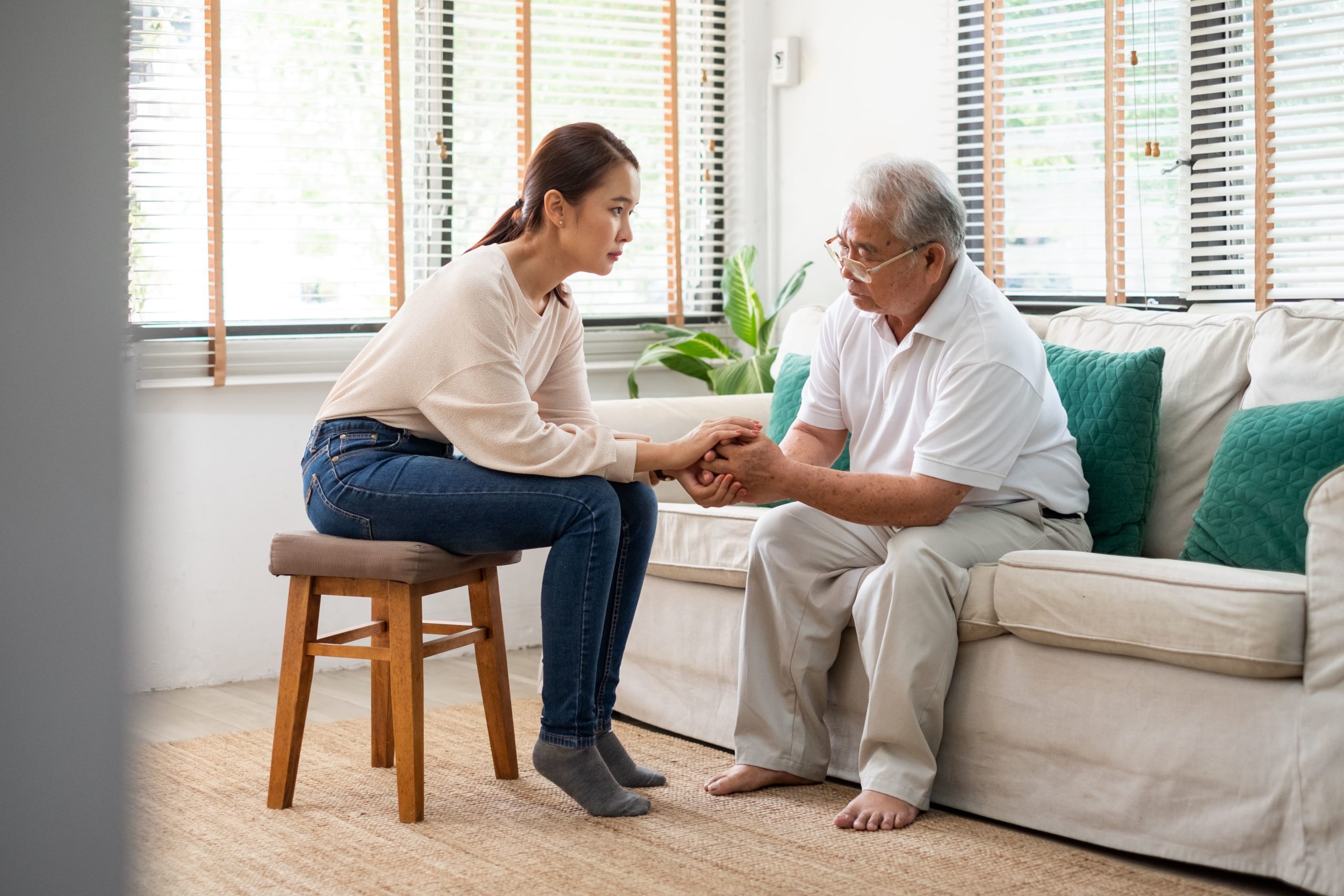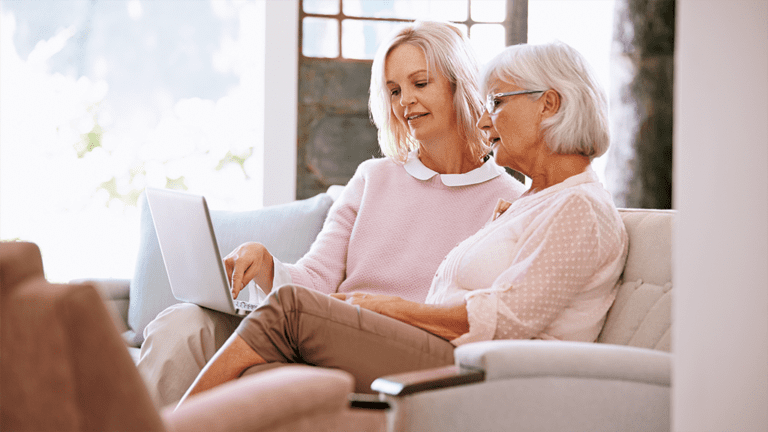Anxiety in elderly is more prevalent than depression, yet it is frequently undiagnosed. Anxiety symptoms include excessive and illogical concern or fear, avoidance of ordinary activities, a racing heart, shallow breathing, and shaking. Anxiety can be lessened or alleviated by practicing relaxation techniques, being physically and socially engaged, eating, and sleeping properly, listening to music, or getting help through evidence-based treatments such as cognitive behavior therapy.
Anxiety disorders are more prevalent than depression in older persons, although they are frequently misdiagnosed due to a focus on despair and dementia. Adults over 65 who suffer from anxiety have more difficulties with daily activities and are at a greater risk for physical disease, falls, depression, disability, social isolation, and death.
Anxiety in elderly symptoms
Due to memory or cognitive deficits, older people may be unaware of their anxiety. Seniors may conceal their anxiety symptoms for fear that others will intervene in unpleasant ways. Other reasons their anxiety may not be visible include the loss of friends or relatives, declining mobility, and increased social isolation. These circumstances emphasize the importance of being aware of common anxiety symptoms.
Anxiety in elderly symptoms included:
- Increased alcohol and medication self-medication
- Thoughts like “I’m going insane” or “I know I’m going to die” is irrational.
- Restlessness is a more prominent anxiety in elderly symptoms
- Irritability
- Memory impairments
- Obsessive musings
- Headaches or abdominal pain
- Muscle tension
- Excessive and unreasonable worry or dread
- Checking repeatedly for safety
- Avoiding repetitive actions
- Avoiding social situations
- Rapid heartbeat
- Shallow respiration, trembling, nausea, and perspiration.
How to alleviate anxiety in elderly people
Following are some considerations for elderly people to alleviate anxiety
- PHYSICAL ACTIVITY
Physical activity is one of the best methods to enhance your mental health, yet many seniors need more exercise. Here are some of the most effective forms of exercise for senior citizens:
- Walking or hiking
- Chair Yoga
- Swimming or aquatic exercise
- Dancing
- Bodyweight workouts
There are several internet tools and fitness videos tailored for seniors. Consult your doctor before commencing a new exercise routine, especially if you already have health concerns.
- DIET CHANGES
The importance of proper nutrition for mental and physical wellness cannot be overstated. The appropriate combination of protein, healthy fats, and carbohydrates will help you regulate anxious thoughts by supplying your brain with fuel. Ensure you consume various nutritious foods at each meal and enjoy your favorite snacks in moderation.
Certain substances are directly associated with a rise in anxiety. Caffeine and nicotine, for instance, are both stimulants that can cause nervousness or agitation. Avoid smoking and consuming excessive amounts of caffeine to maintain a relaxed state of mind and body.
- BREATHING EXERCISES
Breathing deeply is an excellent method for managing the physiological symptoms of anxiety in elderly. When you breathe deeply, your blood contains more carbon dioxide, which can calm the anxiety-causing regions of the brain. Additionally, deep breathing activates the parasympathetic nervous system, which aids in rest.
Mastering breathing exercises requires practice, but they can become more effective if they become a habit. Try to breathe so that when you inhale, your stomach swells, and when you exhale, it deflates. A common strategy for breathing is to inhale for four counts, hold for four counts, then expel for four counts. Alternately, one may breathe in for seven counts and out for eleven.
- SOCIAL INTERACTION
Numerous senior citizens endure loneliness, especially if they have restricted mobility and cannot leave their homes frequently. Assisting senior citizens in overcoming social isolation can effectively alleviate anxiety and other mental health issues.
Family provides significant social support. Regular visits with your siblings, children, grandchildren, or other family members can distract you from anxious thoughts and boost your mood. Try video chatting with relatives and friends if you cannot see them in person. You could also locate social support possibilities in your community through the senior center or volunteer organizations.
- SLEEP HYGIENE
Sleep deprivation can exacerbate anxious feelings in elderly persons, but anxiety can also impede sleep. Here are some techniques to improve your sleeping environment and routines to boost your mental health:
- Every day, go to bed and wake up at the same hour.
- Utilize a white noise generator to mask annoying sounds.
- Before bed, relax by reading or listening to music.
- Avoid caffeine consumption in the afternoon.
- Have a family member, friend, or medical alert system that you may contact in an emergency at night.
- RELAXING HOBBIES
To relieve anxiety in elderly there should engage them in calming activities, you can relax and be distracted from anxiety-inducing stimuli. Because everyone has various interests, you may need to attempt a few different activities before you find one that helps you relax. The most popular pastimes among seniors are drawing, coloring, listening to music, reading, and gardening.
- CONSULT WITH A DOCTOR
Occasionally, a mental health condition indicates a physical health issue. Various medical conditions, such as hyperthyroidism, dietary deficiencies, and Lyme disease, are associated with anxiety. It might also be adverse medical effects. A visit to your doctor can help you treat any physical health concerns triggering your nervous symptoms, thereby reducing, or eliminating the issue.
- COUNSELING
People of various ages and backgrounds can benefit from engaging with a counselor, as therapy successfully addresses anxiety disorders. Many elderly persons find it simpler to discuss their mental health difficulties with an impartial expert than with relatives or friends.
You and your therapist can determine the causes or triggers of your anxiety during therapy sessions. Then, you can collaborate to develop a plan for managing stress as it arises. The more you practice these strategies, the simpler it will become to ignore anxious thoughts and live a worry-free existence.
You and your therapist can determine the causes or triggers of your anxiety throughout your counseling sessions. Then, you can collaborate on a plan to manage anxious sensations when they occur. The more you practice these abilities, the easier it will be to ignore worrying thoughts and enjoy life without concern.
Seroquel for anxiety in elderly
Seroquel for anxiety in elderly should only be explored as a treatment for anxiety if other anxiety drugs, such as Prozac, Zoloft, and Celexa, have been ineffective.
Regular and careful use of Seroquel or other anti-anxiety medicine is essential to treat your symptoms effectively. If your doctor prescribes Seroquel to treat your anxiety, you must continue taking the medication for as long as they instruct.
Even if your anxiety symptoms improve and you believe you no longer require the medication, you should not stop Seroquel for anxiety in elderly without consulting your doctor.







